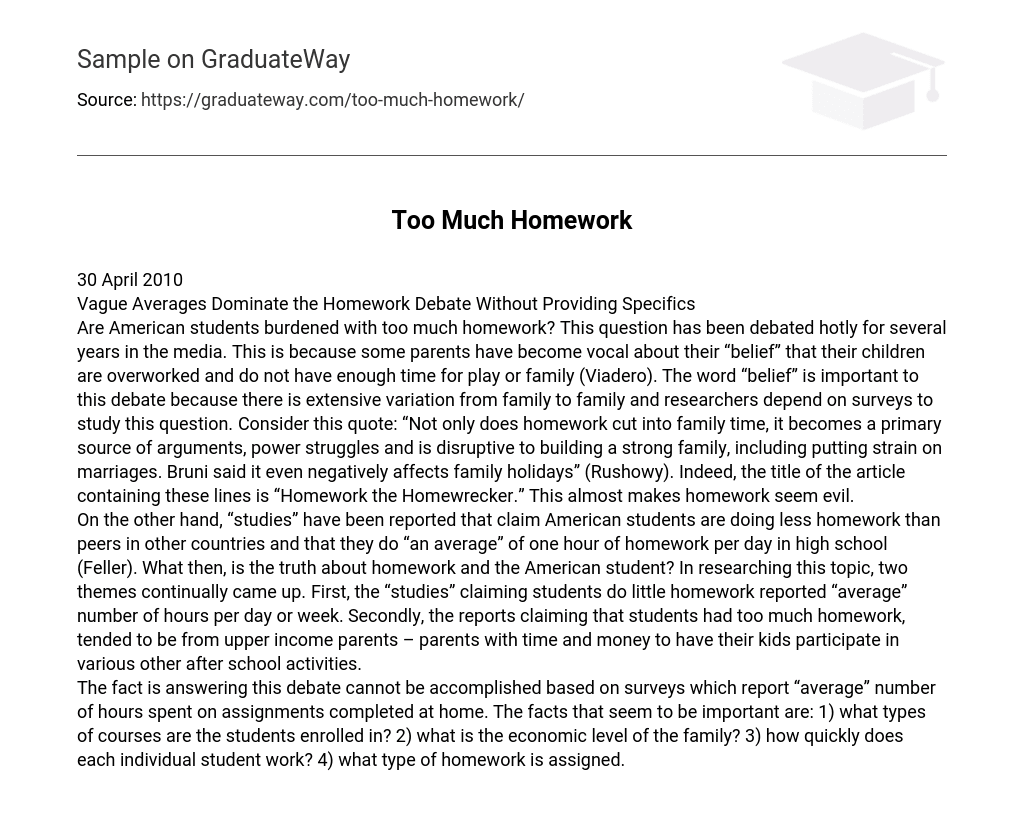Are American students burdened with too much homework? This question has been debated hotly for several years in the media. This is because some parents have become vocal about their “belief” that their children are overworked and do not have enough time for play or family (Viadero).
The word “belief” is important to this debate because there is extensive variation from family to family and researchers depend on surveys to study this question. Consider this quote: “Not only does homework cut into family time, it becomes a primary source of arguments, power struggles and is disruptive to building a strong family, including putting strain on marriages. Bruni said it even negatively affects family holidays” (Rushowy).
Indeed, the title of the article containing these lines is “Homework the Homewrecker.” This almost makes homework seem evil. On the other hand, “studies” have been reported that claim American students are doing less homework than peers in other countries and that they do “an average” of one hour of homework per day in high school (Feller).
What then, is the truth about homework and the American student? In researching this topic, two themes continually came up. First, the “studies” claiming students do little homework reported “average” number of hours per day or week. Secondly, the reports claiming that students had too much homework, tended to be from upper income parents – parents with time and money to have their kids participate in various other after school activities.
The fact is answering this debate cannot be accomplished based on surveys which report “average” number of hours spent on assignments completed at home. The facts that seem to be important are:
- what types of courses are the students enrolled in?
- what is the economic level of the family?
- how quickly does each individual student work?
- what type of homework is assigned.





